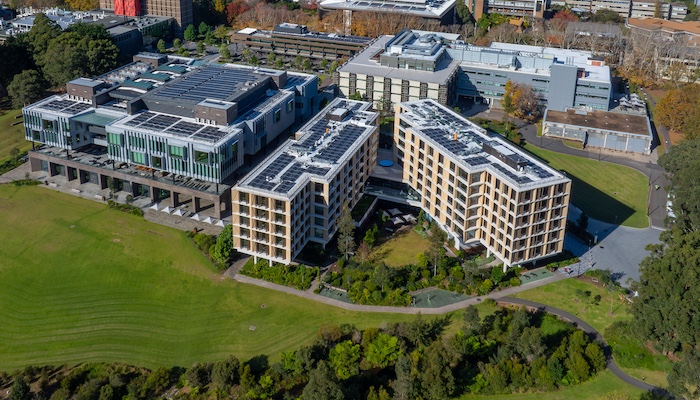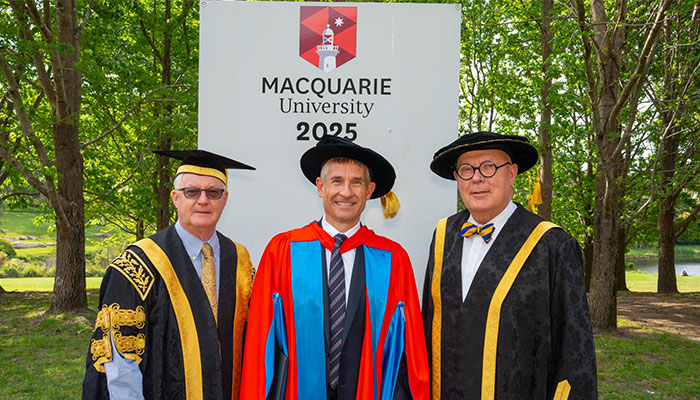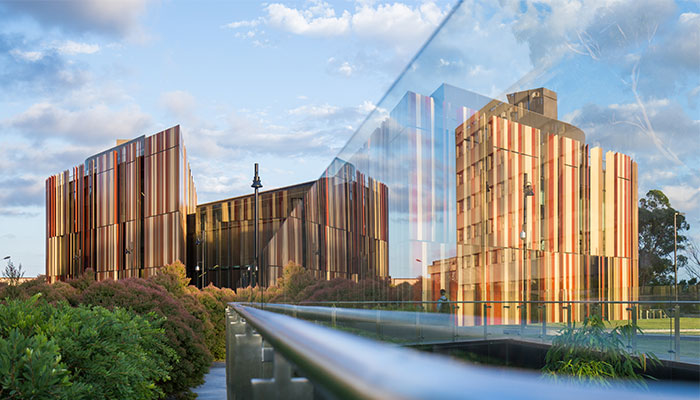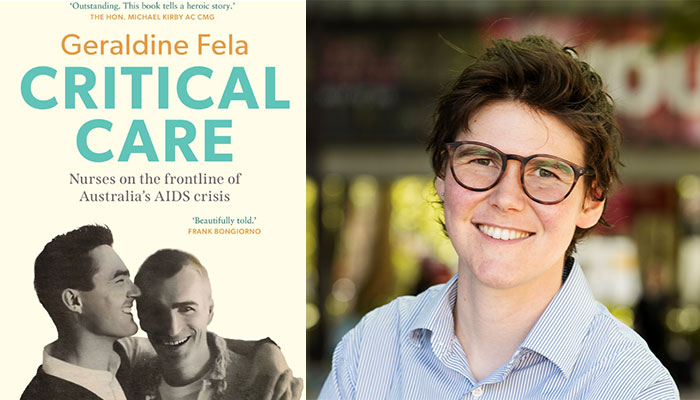Professor Lina Yao, Associate Professor Jia Wu, Professor Yijiao Jiang, Associate Professor Charles Butcher and Professor Mark Alfano have all been awarded ARC Future Fellowships.
One of Australia’s most significant funding schemes, Future Fellowships recognise excellence in research and support work of national and international benefit.

The five researchers’ work spans public sentiment on global warming and immigration, how states transition to democracy, new carbon-capture technologies to help reach net zero, enhanced data mining that could help create intelligent transportation and finance systems, and advanced, interactive AI capable of understanding text, image and audio and which is also adaptive to real-world scenarios.
The five awardees have each received more than $1 million for their respective projects and are among 100 outstanding researchers to win Future Fellowships.
“Future Fellowships are one of the most prestigious funding schemes in the world,” Deputy Vice-Chancellor (Research) Professor Sakkie Pretorius said.
“They not only recognise and empower talented researchers at the very top of their game but help drive the critical knowledge and breakthroughs our nation and world needs, translating innovation into real-world impact.
“These fellowships are wonderful and well-deserved recognition of the breadth and depth of the work undertaken by these talented Macquarie University researchers, as well as our mission to deliver profound social and economic benefit to the world through discovery and new knowledge.”
In addition to the five Future Fellowships, Dr Christopher Pastras and Dr Anthony Waddle have each been awarded an ARC Early Career Industry Fellowship to advance vital health and conservation breakthroughs.
These highly competitive fellowships are designed to support Australia’s emerging research leaders by fostering collaboration between universities and industry partners. They provide crucial funding to accelerate the translation of research into applied outcomes.
Dr Pastras and Dr Waddle will share more than $1 million in funding and are among 50 researchers recognised for their important work and contribution.
Dr Pastras will collaborate with Cochlear Limited to explore future therapies for inner ear disorders. Dr Waddle will work with the Sydney Olympic Park Authority and the Department of Climate Change, Energy, the Environment and Water to develop genetic resistance to a deadly fungal disease devastating native Australian frogs.
“These fellowships are an outstanding recognition of Dr Pastras and Dr Waddle’s world-class research and its potential to deliver real benefits to society,” Professor Pretorius said.
“The ARC Early Career Industry Fellowships are particularly important because they empower researchers to engage with industry at a formative stage in their careers, building the foundations for innovation, impact and long-term collaboration.
“I congratulate all seven of our exceptional researchers on their well-deserved recognition and funding support, and look forward to seeing the important contributions they all make.”
Read more details about the Macquarie University Future Fellowships and Early Career Industry Fellowships or at the summaries below.
Project details
Future Fellowships
Tandem electrolysis to produce liquid fuels from carbon capture feedstock
Professor Yijiao Jiang, Faculty of Science and Engineering
As the global push towards a net-zero economy intensifies, innovative strategies for carbon capture and utilisation become increasingly crucial. This project aims to deliver a cost-effective and durable tandem electrolysis technology for converting CO2 into high-rate transportable liquid fuels, facilitated by mechanism-driven catalyst development and engineering innovations in prototyping. The resulting innovations will not only reduce the environmental impact of atmospheric CO2 but also generate high-rate transportable fuels and industrial feedstocks for the sustainable production of commodity chemicals.
Funding awarded: $1,286,884
Building robust networks of trust in the Anthropocene
Professor Mark Alfano, Faculty of Arts
This project aims to inform an evaluation of discourse about global warming. Social media data will be collected to construct an international network that discusses global warming. Using both social network analysis (clustering, identification of central nodes) and natural language processing to identify climate sceptics and anti-immigrant sentiment, the project examines trust-related language in the network, enabling tracking of changes in discourse, identification of vectors of mistrust, and collocations of terms, hashtags, and emoji. From this empirical basis, interventions to foster better patterns of trust will be proposed. This will result in better policies and regulations for social media communication about controversial topics.
Funding awarded: $1,258,732
(Dis)Integrating the Past: How old states shape new wars
Associate Professor Charles Butcher, Faculty of Arts
This project aims to model how precolonial states have shaped internal borders and the flow-on impacts for conflict using new spatial data on the evolution of boundaries in Asia and Africa from 1750-2020. Discontinuities between precolonial states, colonial regimes, and postcolonial governance have destabilised countries in Australia's region, such as Indonesia, and remain a source of tension. This project provides scientific knowledge on the mechanisms through which precolonial institutions can be peacefully incorporated into stable, democratic governments. Results will help policy makers anticipate the fault lines along which new conflicts in Australia's region might erupt and tools to prevent their onset.
Funding awarded: $1,279,427
Next-Generation Graph-Level Mining for High-Complexity Data Environments
Associate Professor Jia Wu, Faculty of Science and Engineering
This project aims to advance Australia's data mining research by developing cutting-edge graph-level mining solutions for highly complex real-world data environments, such as multi-source, low-quality, and multi-graph data. The research will primarily explore intricate structural interactions in challenging scenarios to generate new knowledge and enable effective, reliable, and robust graph analysis with interpretability. This project will lay the theoretical foundations of this significant research field to strengthen Australia’s world leadership role in data science. Practically, the outcomes should benefit Australian governments and businesses across diverse applications, such as intelligent urban transportation and financial networks.
Funding awarded: $1,173,569
Advancing Steerable LLM-powered Agents for Dynamic Multimodal Interactions
Professor Lina Yao, Faculty of Science and Engineering
This project aims to develop advanced, interactive AI systems by leveraging large language models (LLMs) to create adaptive, multimodal agents that are capable of understanding and interacting through texts, images, and audios. The research will revolutionise decision-making, planning, and alignment with user preferences by advancing multimodal alignment techniques and reinforcement learning. The significance lies in addressing current limitations and making AI adaptive, context-aware, and responsive in real-world scenarios. Expected outcomes include transforming AI performance in dynamic environments such as manufacturing and education, with benefits including scholarly advancements and practical applications in user-centered AI systems.
Funding awarded: $1,282,368
Early Career Industry Fellowships
Creating a sense of balance: Enhancing stimulation of vestibular tissues
Dr Christopher Pastras, Faculty of Science and Engineering
Tucked away deep in the hardest part of the skull hides our balance system – the mysterious unsung hero of the senses that controls gaze, posture, and spatial orientation. In collaboration with key industry partner, Cochlear Limited, this project aims to unlock the core features of the mammalian balance system, involving organisational principles and coding mechanisms, such as how balance receptors provide three-dimensional neural representations of the external world. Findings will reveal new insights into the fundamental operation of this important sensory system and will direct evidence-based coding strategies to improve the control of neuronal excitability within the ear for future translational success.
Industry partner: Cochlear Limited
Funding awarded: $512,109
Synthetic biology conservation of endangered species impacted by disease
Dr Anthony Waddle, Faculty of Science and Engineering
The invasive disease chytridiomycosis has brought devastation to native Australian frogs with six species being driven to extinction and numerous others in decline. This project aims to provide endangered frog species with heritable chytridiomycosis-resilience. This innovative work will combine synthetic biology with conservation biology to overcome a major conservation challenge. The outcome of this research will be the generation of biotechnological tools for generating endangered frogs that are more resilient to chytridiomycosis and, in turn, a potential exit strategy for indefinite captive management of highly susceptible species.
Industry partners: Sydney Olympic Park Authority, and the Department of Climate Change, Energy, the Environment and Water
Funding awarded: $515,109



